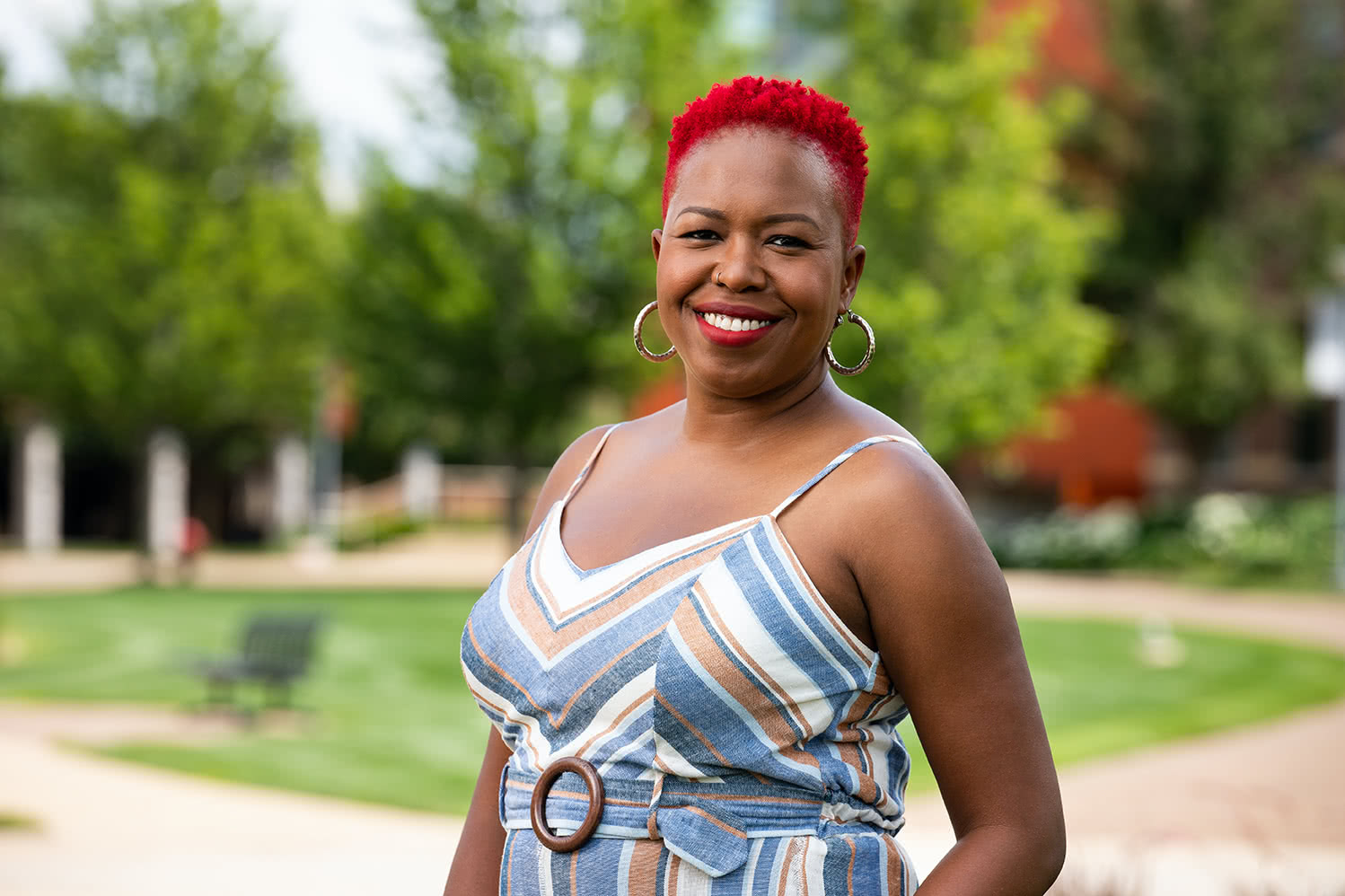
 Kiana Hughes knows there’s a need for quality cannabis education in Illinois.
Kiana Hughes knows there’s a need for quality cannabis education in Illinois.
She hears it from local dispensary owners, who are unsatisfied with new hires’ knowledge. She sees how online cannabis programs sell a “dream and a lie” with training webinars that can’t begin to prepare serious workers for this booming industry.
“You can see this writing is on the wall. You see more colleges and universities recognize that this is a trade, an industry,” Hughes said. “There needs to be education and training around it.”
That’s why she joined Harper College as a faculty fellow and coordinator for the Cannabis Science and Therapeutics program, which begins with two new, online courses this fall semester.
Having spent more than 16 years as a college and corporate curriculum coordinator and more than six as a leader in local and national cannabis communities, Hughes said she understands how a dedicated, scientific cannabis education program can provide opportunities for qualified workers in this ascending industry. She’s excited that Harper hasn’t “grafted on” a cannabis angle to existing classes, like some institutions. The college has built its program from the ground up.
“I like that Harper is investing resources in the development of a real program,” Hughes said. “It isn’t any different than any other kind of education. Our industry isn’t any different than any other industry.”
She acknowledged that this can be difficult for some to understand, considering the stigma of a drug that has only recently been legal in Illinois for medical use (since 2014) and recreational use (since 2020). But Hughes expects anyone who looks into Harper’s program to recognize the educational diligence and thorough training involved.
For instance, to earn the Cannabis Science and Therapeutics certificate, students will take six online courses spread across three semesters. The Illinois Community College Board-approved credential program includes on-the-job experience in the form of an internship as well as the necessary Illinois Responsible Vendor Training required for employment. To work in the cannabis industry, students also must be 21 or older to receive agent identification from the Illinois Department of Financial and Professional Regulation.
In the program’s courses – beginning with Introduction to Cannabis and Cannabis Law and Policy – students will benefit from Hughes’ experience and industry network, including those involved in law, business, accounting, operations, cultivation and outreach.
The certificate is for “people who are seeking a career in this industry,” she said. “They want something in-depth so if they start as a dispensary agent or ‘budtender,’ they can also look to higher-level positions involving management or become entrepreneurs.”
Hughes said the jobs are there now, with more to come. According to industry website Leafly, cannabis jobs are being created at a record rate. Last year saw a 71% increase in revenue along with more than 70,000 new positions. These include budtenders, patient care specialists, cannabis product sales representatives, dispensary managers and more.
That means not just more opportunities paying good wages in an expanding business but, as Hughes pointed out, more prospects for people of color. She hopes Harper’s program will draw and empower a diverse body of students to explore cannabis careers. Education and training are crucial elements.
“There’s a demand and a need for a level of rigor,” Hughes said. To be considered a quality employee in the cannabis industry, “there’s a level of study and investment to talk about things the right way. You need a breadth of knowledge.”
To learn more about Harper’s Cannabis Science and Therapeutics program and certificate, visit the program’s homepage or call Admissions Outreach at 847.925.6700.